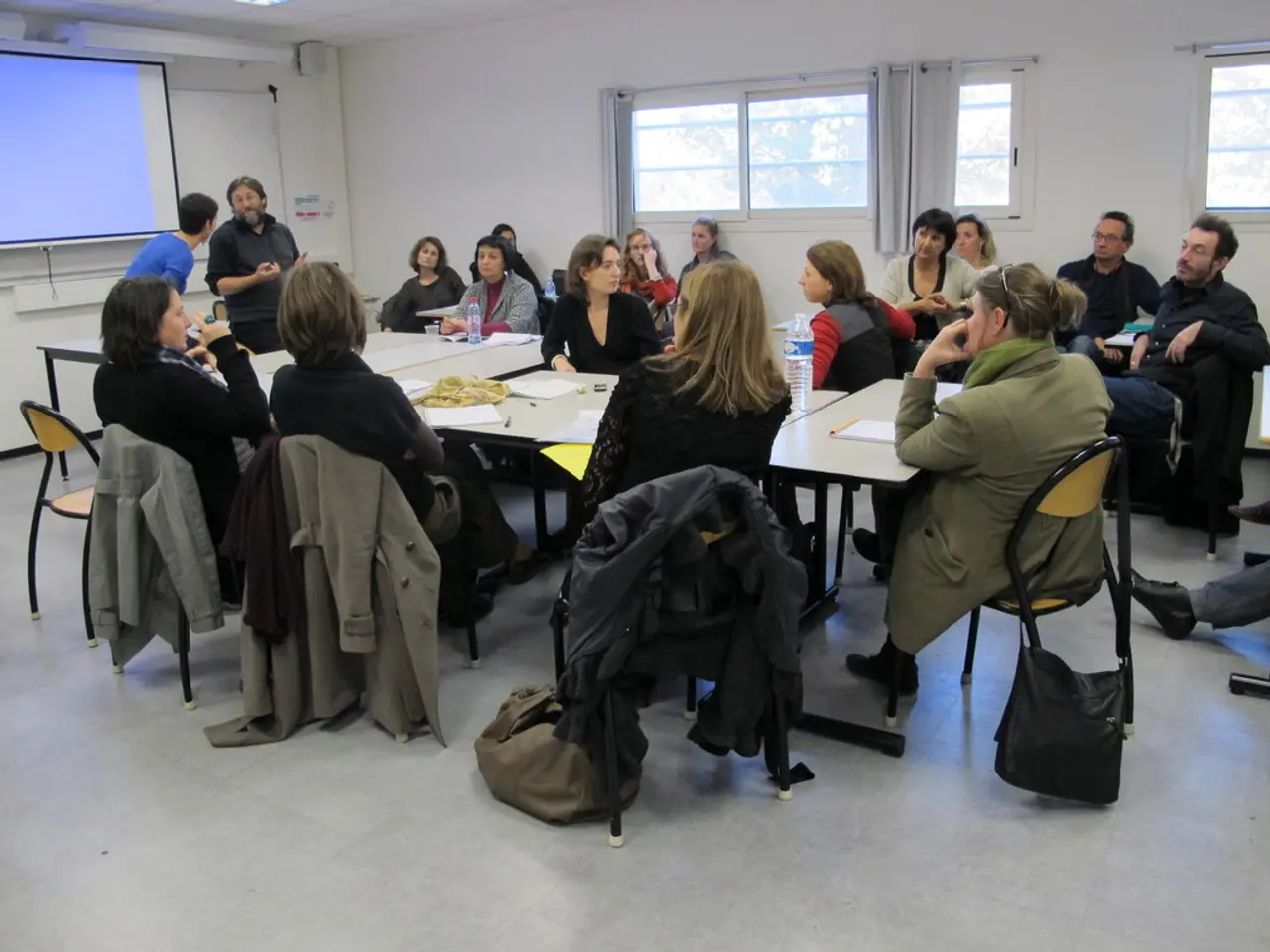Coping with Exclusion Can Be Difficult. Here's Some Advice on How Not to Overreact.
In a world where social media often amplifies feelings of exclusion, it's essential to remember that not being invited to social events doesn't always mean intentional rejection. Anna Goldfarb, a journalist and author of the forthcoming book "Modern Friendship," and Danielle Bayard Jackson, a friendship coach and host of the "Friend Forward" podcast, have shed light on various alternative reasons for being left out.
Goldfarb notes that people often take not getting invited "very personally." However, she suggests putting yourself in the other person's shoes and considering if there might be something you're doing that's putting people off. Bayard Jackson agrees, emphasizing the importance of taking feedback from multiple sources in your life about your attitude or conversational habits seriously.
One common reason for not being invited is unintentional ostracism. People may form social groups or cliques without realizing they are accidentally excluding others. Affinity bias, where individuals tend to invite or include those they share common interests or backgrounds with, might unintentionally leave others out due to different tastes, habits, or social circles.
Practical limitations are another factor. Hosts often have to limit guest lists due to space, budget, or nature of the event. This can lead to some people being left out for logistical reasons, not personal feelings.
"Plus-one" considerations also play a role. When inviting guests to events, hosts sometimes assess whether a potential invitee would enjoy or fit well in the event. If they judge a potential guest would not enhance the experience or could cause embarrassment, they may decide not to invite them.
Social fatigue and personal boundaries can also lead to limited invitations. Sometimes hosts or friends may purposely limit invitations to avoid burnout or obligation overload, unrelated to negative feelings about the person left out.
Different communication styles or social challenges can also result in unintentional exclusion. Some people may be left out due to lack of communication or different social behaviors that make them less involved in planning or informal invites.
Research shows that many people overestimate how much others are hurt by turned-down invitations, and many exclusions are misunderstandings rather than deliberate acts of rejection. Understanding these multifaceted reasons can help reduce feelings of hurt or alienation.
Bayard Jackson hopes that people will see that "sometimes it's logistical, sometimes it's an oversight, sometimes they're doing it for what they believe to be noble reasons." She encourages approaching a conversation about wanting to be included in future social get-togethers or events in a casual, tactful way.
Goldfarb believes that anytime you feel rejected, it can feel empowering to use that sadness, that energy, to connect with someone else. She suggests using feelings of rejection as an opportunity to reach out to friends you've "let float into the outer orbits."
In conclusion, understanding the complexities behind not being invited can help alleviate feelings of hurt and alienation. It's essential to remember that not every exclusion is intentional and to approach conversations about inclusion with empathy and understanding.
In the realm of self-development, learning to deal with unintentional exclusion can be a critical part of personal growth. This understanding is crucial for improving one's relationships, as it promotes a more empathetic approach towards others and fosters resilience in the face of perceived rejection.
To nurture and maintain healthy friendships, it's essential to consider alternative reasons for not being included in social events and communicate effectively with potential hosts or friends, as the reasons for exclusion are often multifaceted and not always intentional.




